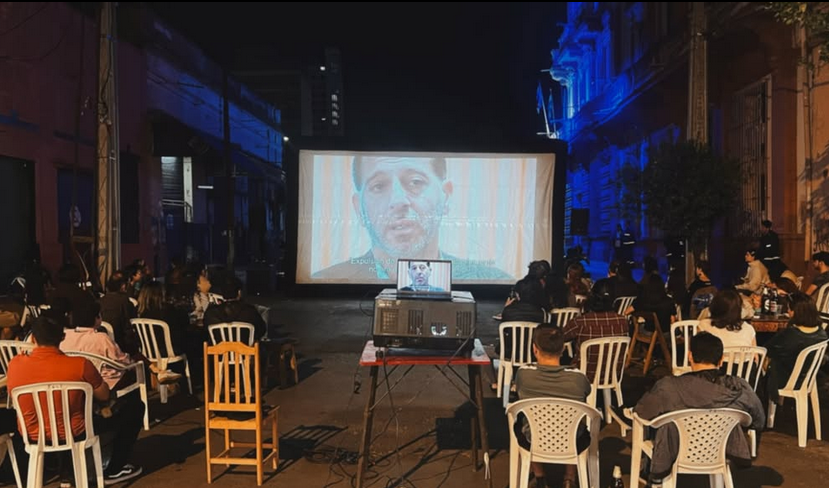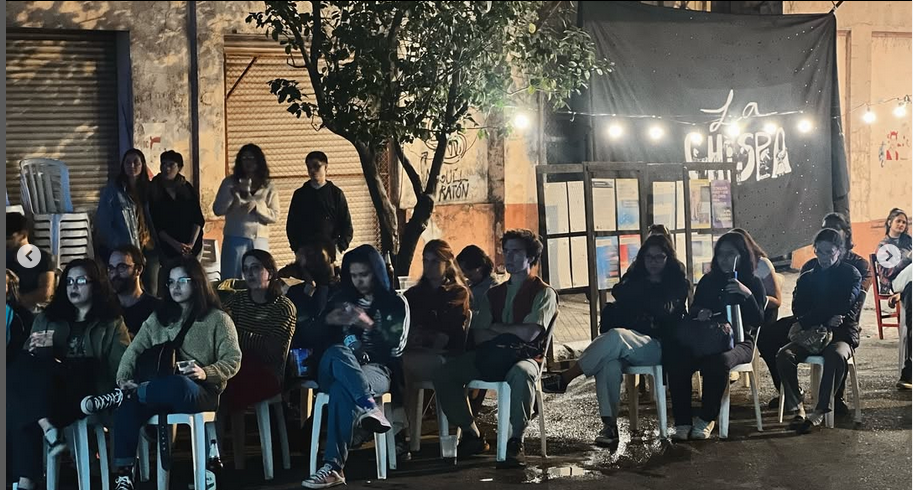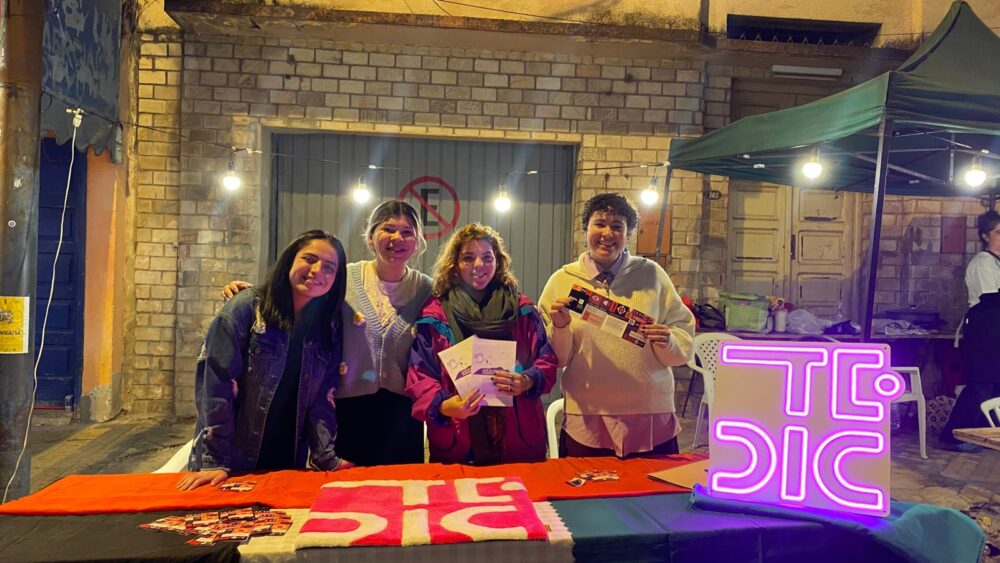
From TEDIC and as members of the international Stop Killer Robots campaign, during the months of July and August, we reaffirm our commitment to human rights, peace, and justice. As violence escalates on the world stage and the genocide against the Palestinian people continues unabated, we decided to organize spaces for reflection and symbolic actions with our community, honoring life and seeking the support of more authorities to demand a ceasefire and an end to robots manufactured for war.
In June 2025, the Freedom Flotilla, carrying 12 activists including Greta Thunberg, attempted to bring humanitarian aid to Gaza by sea. During the journey, the flotilla was intercepted by Israeli drones and ultimately deported by the Israeli government, unable to fulfill its goal of delivering essential supplies to the residents.
As digital witnesses to this blockade and Israel’s successive actions against the Palestinian people, we could not stand idly by and decided to organize with our community to express our concern, demand an end to the genocide, and find collective ways to honor and protect life, both inside and outside digital environments, in the face of such dehumanization.
Film debate for historical memory
On Saturday, July 5, we held the activity Alto al Fuego (Ceasefire), a day of exchange, memory, and critical thinking that was carried out in partnership with the La Chispa Cultural Center and the Cine Club Itinerante platform. The meeting took place on the block of El Teatrario, Garibaldi, and Palma.
Together with our community and as an act of solidarity with the Palestinian people, we gathered to reflect and raise our voices to call for an end to the attacks carried out by Israel. With the screening of the documentary “1948: Creation and Catastrophe,” we were able to temporarily place ourselves at the beginning of the conflict in Palestinian territory and gain an in-depth understanding of the dispute through testimonies and documents from the time.



As an organization that fights for human rights and their intersection with technology, we are particularly concerned about the use of autonomous weapons for military purposes in conflicts such as the one Israel is waging against Palestine. We are also concerned about the use of drones and other technologies to monitor and attack humanitarian aid groups attempting to reach the territory.
In this regard, we are also adding our mini-exhibition “Re(x)sistentes a la deshumanización digital” (Resisting Digital Dehumanization), a series of investigations that denounce, from a social and human perspective, the militarization of technologies and the normalization of surveillance and automated violence.
We add another signature to the SKR campaign
As active members of the international SKR campaign, we have been seeking the support of Paraguayan authorities, who can add their commitment to banning or regulating the use of autonomous weapons. Organizations such as the UN and SKR have developed a binding treaty that categorically rejects the use of these technologies. Some countries have already expressed their support for the ban, but the major military powers continue to resist.
On the Paraguayan side, in 2024, Congressman Raúl Benítez and Congresswoman Johanna Ortega joined the campaign. In 2025, we managed to get Senator Ignacio Iramain on board with the campaign. He willingly signed the pledge and made a video expressing his concern and opposition to these automated weapons.
Kites for hope
On August 16, Children’s Day in Paraguay, we joined the commemorative activity organized by Palestine in Paraguay to fly kites for hope on the Asunción waterfront.
As a symbolic act, in tribute to both the children of Paraguay, who were martyrs in the War of the Triple Alliance, and those who are currently victims of genocide in Palestine, we participated in a day full of art, memory, games, and artisanal technology.
We advocate for technologies that are transformed and used for the good of all people, such as pandorgas, which today are used purely for leisure and contemplation, and we categorically reject technologies that become weapons of war and threaten human dignity and life.
We will continue to promote and support spaces where people are at the center, where technology is also a tool for care and enjoyment, and not for violence.
